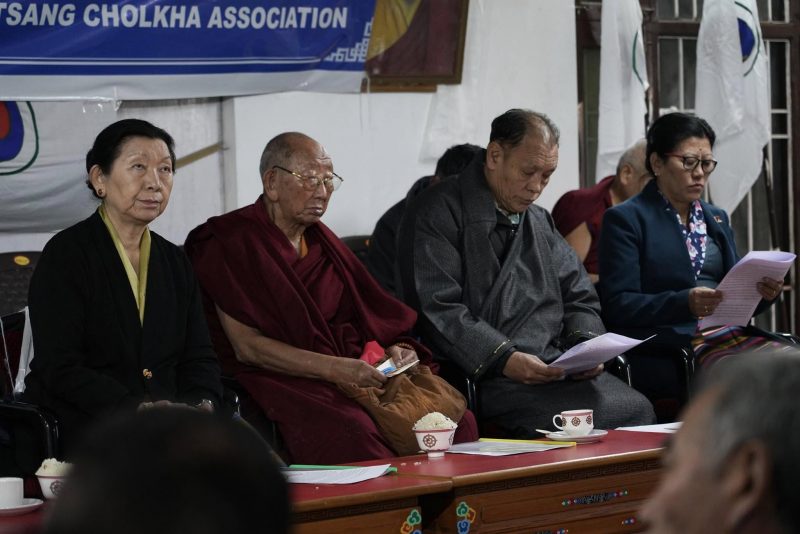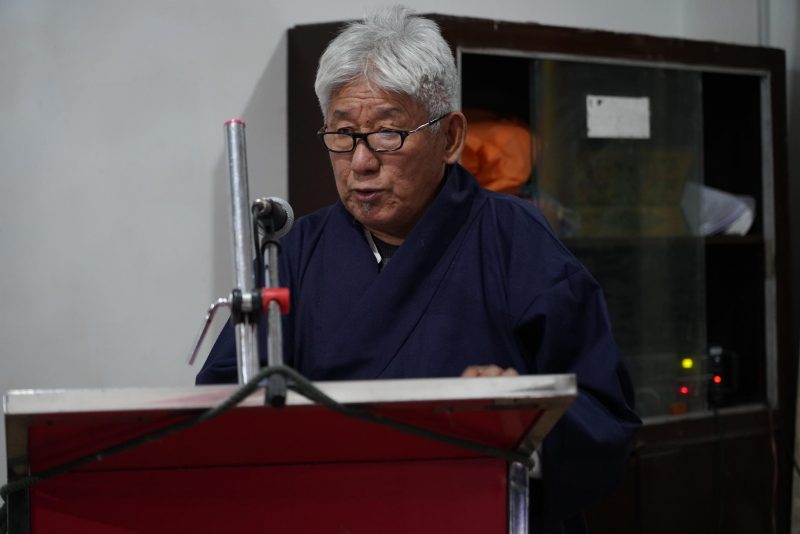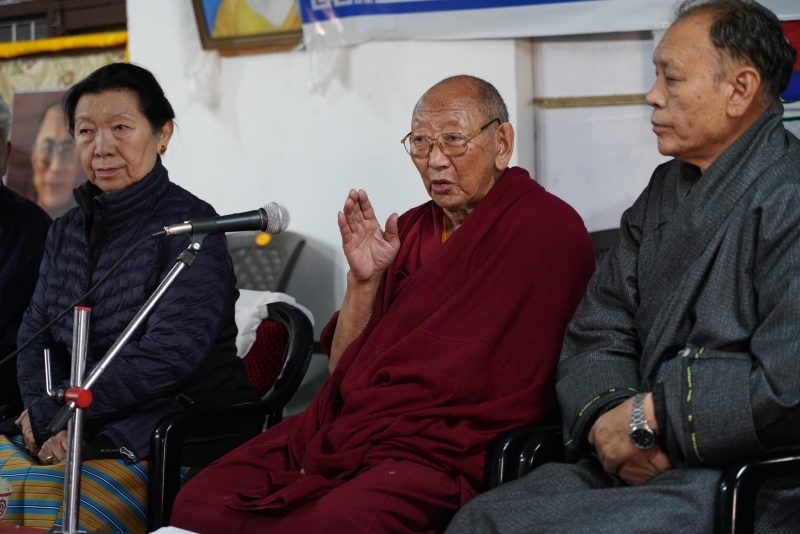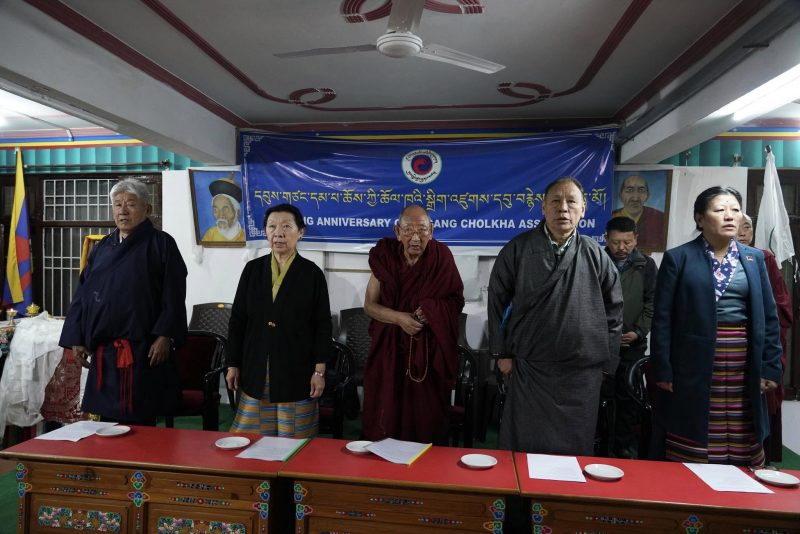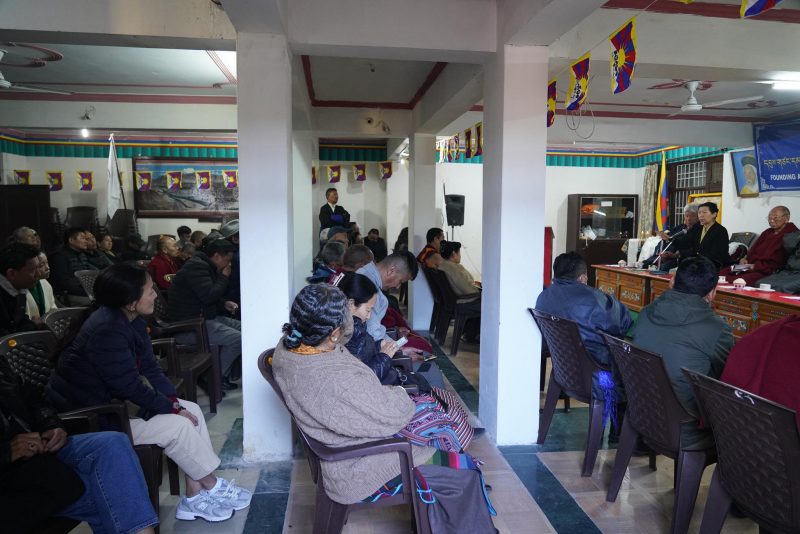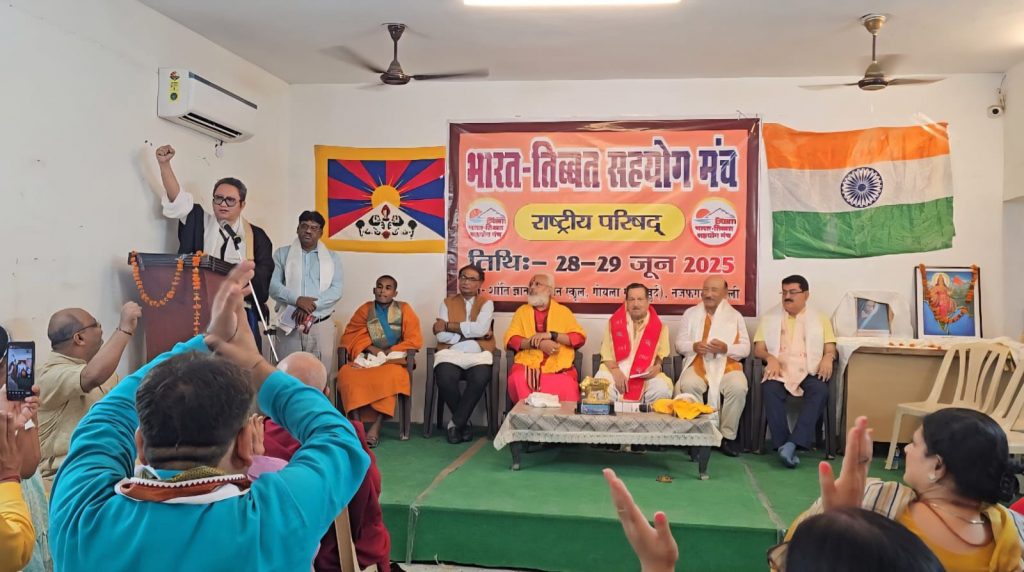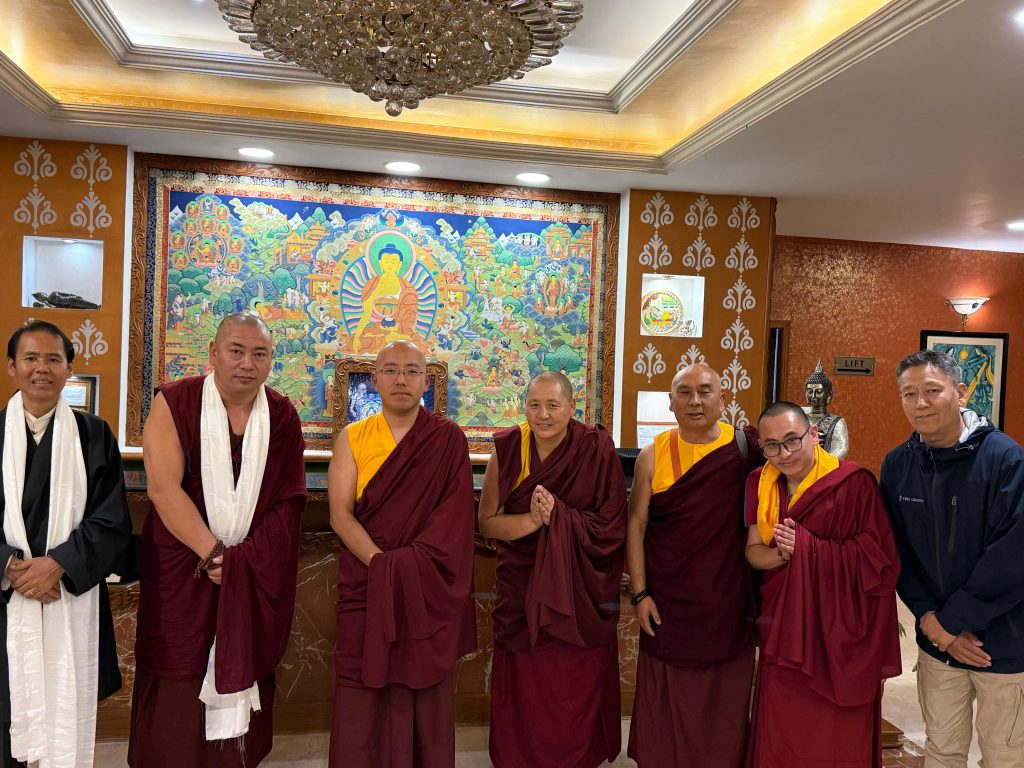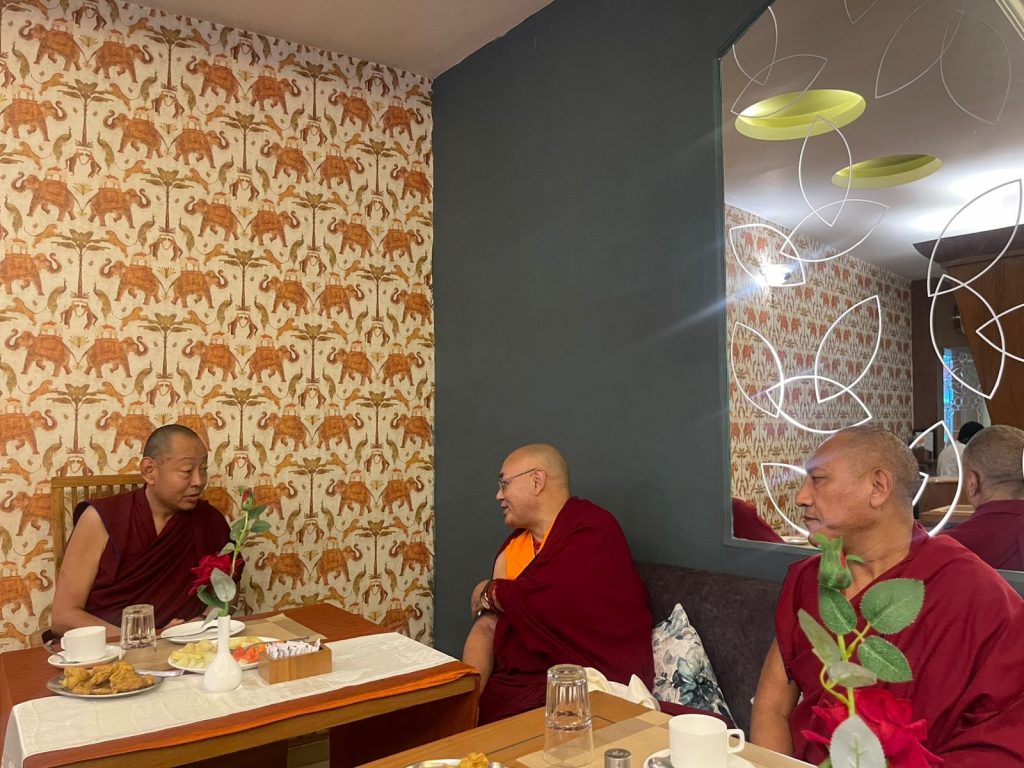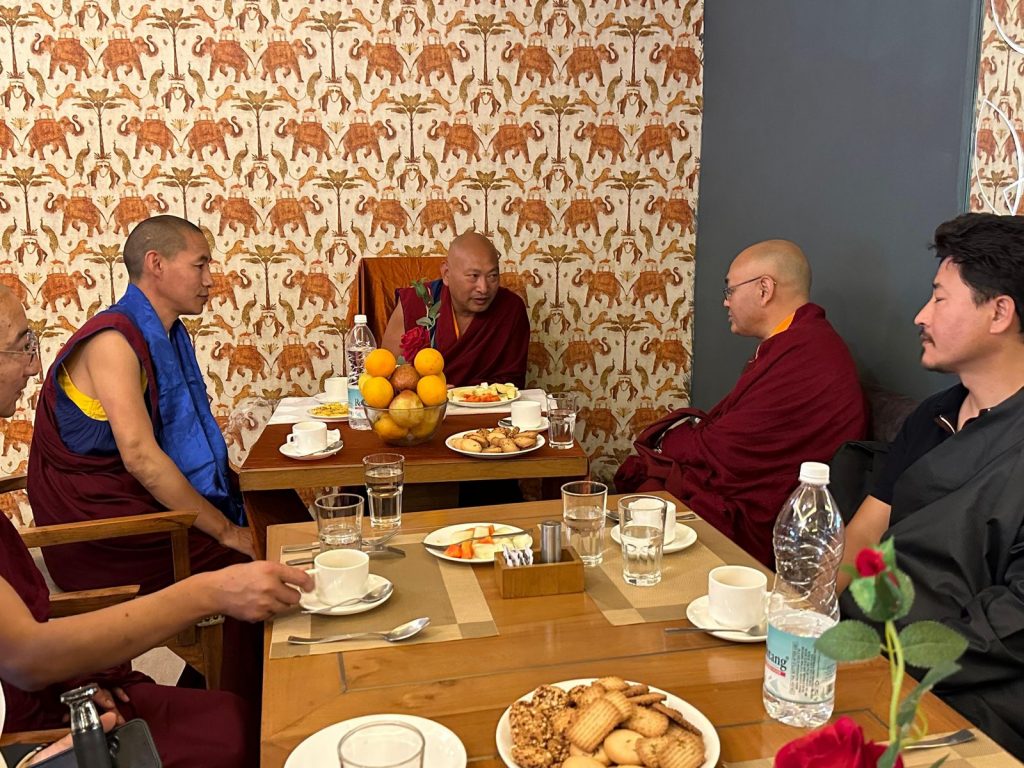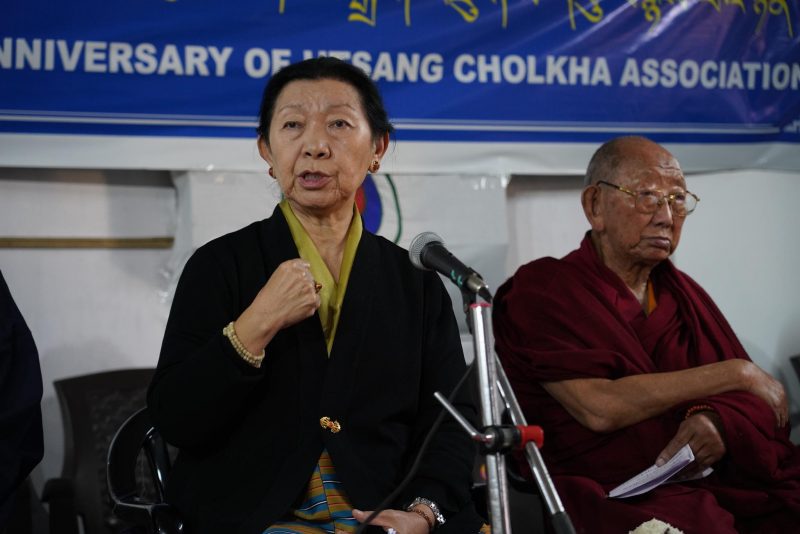
Dharamshala: The 42nd anniversary of the U-Tsang Cholkha Association was commemorated on March 16, 2025, at the U-Tsang Cholkha Hall in McLeod Ganj. The event was honored by esteemed guests, including Chief Guest and former Tibetan political prisoner Tsedrung Jampa Tenzin, as well as Special Guest Deputy Speaker Dolma Tsering Teykhang. Also in attendance were MP Dawa Tsering (President of the U-Tsang Cholkha Association), Parliamentarians from U-Tsang such as MP Dawa Phunkyi and MP Tsering Yangchen, representatives from Tibetan NGOs, and members of the general public, all gathered to mark the occasion.
Addressing the gathering, the Deputy Speaker emphasized the political significance of the three provinces of Tibet and the importance of ensuring equal representation of these provinces in the Tibetan Parliament-in-Exile while reminding the audience of China’s integration of several Tibetan areas from the Kham and Amdo provinces into Chinese provinces. Additionally, she underscored the relevance and importance of the Central Tibetan Administration (CTA), urging the audience to align their efforts with the CTA.
Highlighting the importance of Tibetan culture, language, and religion, the Deputy Speaker urged the Tibetan people, especially the younger generation, to preserve and protect Tibet’s unique cultural heritage. She also shed light on China’s coercion of Tibetan children into colonial boarding schools as part of its efforts to Sinicize Tibet. Speaking on the significance of Tibetan voluntary contributions, she encouraged Tibetans to reduce their dependence on the CTA by striving for self-sufficiency and independence. Furthermore, she emphasized the importance of supporting the CTA in nurturing young Tibetans in various fields of expertise with public contribution.
The Deputy Speaker also commended U-Tsang Cholkha for its valuable contributions to society, including providing financial assistance to elderly individuals and former political prisoners, as well as organizing Buddhist classes. She further advised the association to extend support to scholars working in the fields of Tibetan culture and language preservation.
Concluding her address, the Deputy Speaker highlighted the current situation in Tibet, explaining how China is strategically replacing the name ‘Tibet’ with the term ‘Xizang’ in its efforts to Sinicize the region. She also discussed the influx of large numbers of Chinese tourists into Tibet, a phenomenon known as ‘red tourism,’ and its negative impact on the daily lives of Tibetans. Furthermore, she pointed out the suppression of Tibetan cultural and religious practices, and the efforts to undermine Tibetan identity through state-controlled education and media. She emphasized that these actions are part of China’s broader campaign to erode Tibet’s unique heritage and autonomy.
